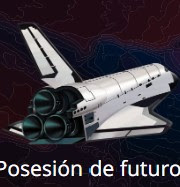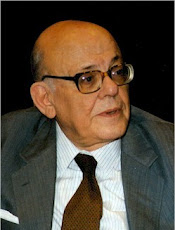.
http://www.iaphilosophicalanthropology.org/congress.html
The International Association for Philosophical Anthropology, the Leonardo Polo Institute of Philosophy (USA) and the Center of the Thought of John Paul II (Poland) with the collaboration of the Cardinal Stefan Wyzsynski University (Poland) presents theInternational Congress Transcendence and Love for a New Global Society.
The Congress will take place in English, and seeks to gather English speaking scholars from throughout the world to explore the implications of Philosophical Anthropology and Ethics in the varied fields of Human Action, Culture, and History. Among many philosphers who have approached the problem of Love and Transcendence such as Plato, Augustine, Aquinas, Scheler, Mauss, von Hildebrand, Arendt, Derrida, Ricoeur, etc., we propose to focus on the anthropological discoveries of John Paul II and Leonardo Polo which are very relevant to the challenge of proposing a ‘logic of gift’ and building a ‘culture of love’ open to Transcendence.
On the one hand, John Paul II changed our direction of thinking about personhood with what he called the ‘theology of the body’. His revolutionary approach gave us the possibility of comprehending sexuality as an opening to transcendence. At the same time, the profound depth of John Paul II’s anthropology opens up new space in our thinking about human beings. For John Paul II, man is defined by a positive relation to the humanity of others, and the person finds himself and his fulfillment in the ability to live and work with others. These two fundamental anthropological dimensions: the relationship with God and the relationship with other human beings is crucial for the understanding of who the human being is, both in one's intimacy and in the context of interpersonal relationships and human communities.
On the other hand, Leonardo Polo's philosophical work can be inserted within the recurring questions of the last few centuries regarding freedom and love as transcendentals and of their relation to the earlier perennial or classical philosophy. It is here that Polo's historical significance lies insofar as he boldly proposes a methodology that opens the way for a metaphysics of freedom or, better said, a theory of the person that responds to the concerns of modern and contemporary philosophy and which continues and expands the achievements of classical and medieval philosophy (especially Thomas Aquinas’ real distinction between esse andessentia). What Polo proposes is a transcendental anthropology and this proposal is made possible by his methodology called leaving behind what limits the mind. A more thorough introduction to Polo's work can be found at the Leonardo Polo Institute of Philosophy website.
Understanding and implementing John Paul II and Leonardo Polo’s anthropology is indispensable for building ‘the civilization and logic of love’ which is of particular importance for the scientific milieu all over the world. It is especially fitting to think about these issues in the context of the World Youth Days (Krakow, Poland July 25 – 31, 2016). Thus, we invite all the scholars who wish to contribute to a better understanding of the heritage of Karol Wojtyła - John Paul II and Leonardo Polo and explore the themes, concepts and ideas embedded in their approach to anthropology and culture.
The II International Congress is mainly targeted at young academics, and aims to be an occasion for them to encounter and deepen their understanding of John Paul II and Leonardo Polo's thought, especially aspects of their philosophy that concern their ethics and philosophical anthropology. The main focus is to show how John Paul II and Leonardo Polo's philosophy provide an important philosophical framework for understanding how the different dimensions of human action and the various disciplines that are studied at the university (architecture, engineering, medicine, law, political theory, business, biology, psychology, education, leadership, ecology, etc.) are related to each other and with culture, history, and society at large. Because of this perspective, the Congress aims at a holistic presentation of the topic “Transcendence and Love for a New Global Society”. Thus it will be an interdisciplinary meeting not only for those with a background in a modern anthropological thought, but also for researchers from all different human scholarly fields with an interest in philosophical anthropology.
Suscribirse a:
Enviar comentarios (Atom)






























No hay comentarios:
Publicar un comentario